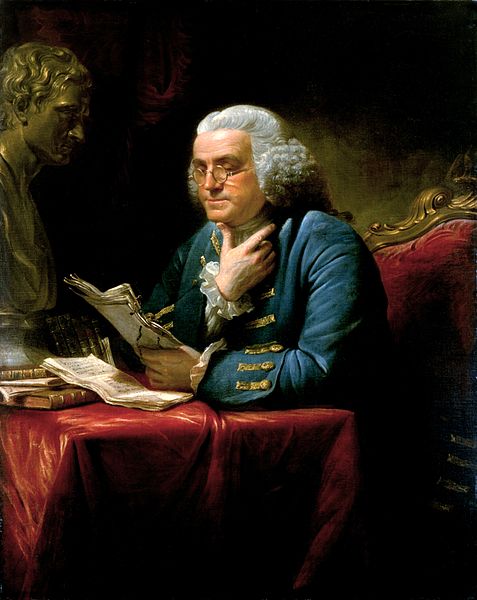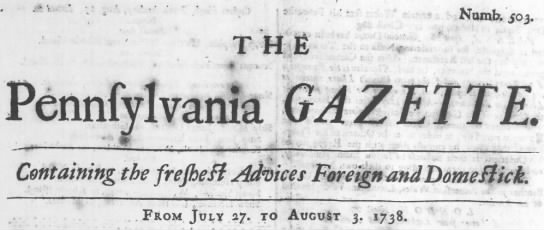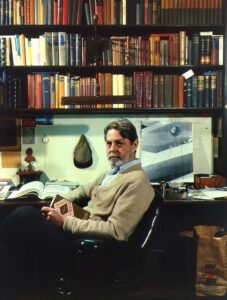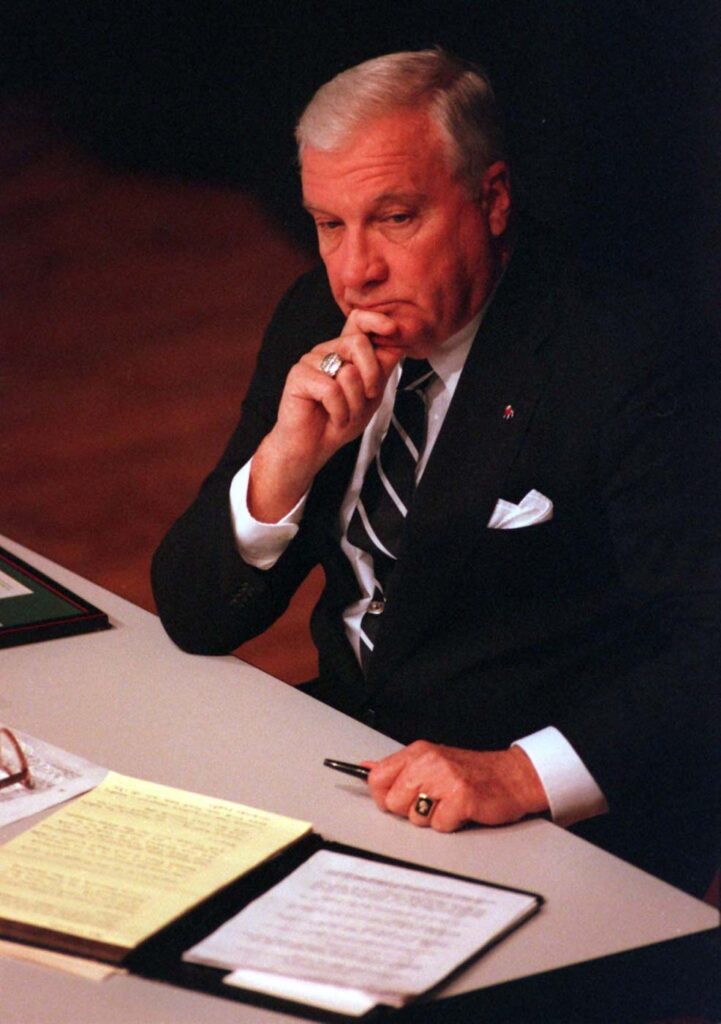 Notes from my recent reading….
Notes from my recent reading….
“There are editors who will always feel guilty that they aren’t writers. I can write perfectly well—anybody who’s educated can write perfectly well. It’s very, very hard, and I just don’t like the activity. Whereas reading is like breathing.”
Robert Gottlieb, Avid Reader: A Life
“He never squandered an hour or a good impulse.”
Sinclair Lewis, Arrowsmith
“She had an immense power of accepting people as they were.”
Sinclair Lewis, Arrowsmith
“If you can be indifferent passionately enough it almost has the virtue of a positive creed.”
Christopher Morley, Streamlines
“Treacherous are standards adopted by public or self-appointed censors. It is part of the American philosophy as expressed in the Constitution—that, except in the most extreme cases, people should be allowed to express their opinions, and that the result of this is to stir up thought and controversy, out of which will emerge the Truth. It is only what is false that is killed by discussion, not what is true.”
Maxwell Perkins, Editor to Author: The Letters of Maxwell E. Perkins
“We are not a nation of children. Our citizens are presumed to be able to judge for themselves, to draw their own conclusions from what they read. In a republic, people are entitled to express their opinions.”
Maxwell Perkins, Editor to Author
“It is those people who know that they are right because some outside or higher power conveys the conviction to them who do the great damage in the world.”
Maxwell Perkins, Editor to Author
“The hour of departure has arrived, and we go our ways—I to die, and you to live. Which is better, God only knows.”
Socrates, quoted in Christopher Beha, The Whole Five Feet: What the Great Books Taught Me About Life, Death, and Pretty Much Everything Else
“I’ve never been one for the ‘take your medicine’ school of culture. I read what I read, for the most part, because I like it.”
Christopher Beha, The Whole Five Feet
“I am extra-big. I have been out in the weather. I look lazy and am. In the words of a Texas chick one time, I look as if I had been there and back.”
John D. MacDonald, The Quick Red Fox
“I didn’t leave any visible marks. But I left the other kind. They last longer.”
John D. MacDonald, The Quick Red Fox
“Kim slid ten thousand miles into slumber—36 hours of it—sleep that soaked like rain after drought.”
Rudyard Kipling, Kim
“The usual masculine disillusionment in discovering that a woman has a brain.”
Margaret Mitchell, Gone With the Wind
“It be a bad night, doctor, for riding; the kind o’ night when dead things come out o’ their graves.”
Dick Donovan, “The Corpse Light”
“Though we are desirous to be cured of our faults, we are loath to part with them.”
James Boswell, Boswell in Search of a Wife
“I have learned, in whatever state I am, therewith to be content.”
James Boswell, Boswell in Search of a Wife
“Consider how easy it is to make people stare by being absurd. I may do it by going into a drawing-room without my shoes.”
James Boswell, Boswell in Search of a Wife
“Sleeping well is one of the easiest and most effective ways to improve all of your brain functions, as well as your ability to learn and remember new knowledge.”
Sanjay Gupta, Keep Sharp: Build a Better Brain at Any Age
“Be assured, and experience will convince you, that there is no truth more certain than that all our enjoyments fall short of our expectations, and to none does it apply with more force than to the gratification of the passions.”
George Washington, quoted in James Thomas Flexner, George Washington: Anguish and Farewell, 1793-1799
“Bugles and drums may come here [to Washington’s tomb] sometimes but they are out of place. Here lies greatness without ostentation, the dust of a man who denied the temptations of power as few other men in history have done. A man who desired from his fellow men not awe, not obedience, but love.”
James Thomas Flexner, George Washington
“He came expectant, with the pleasurable anticipation of disaster, and he was not disappointed.”
Arnold Bennett, The Old Wives Tale
“He said to himself that her charm was not worth her temper.”
Arnold Bennett, The Old Wives Tale
Hitler “had no friends, no close confidants. It was, after all, difficult to be on familiar terms with a deity.”
Thomas Childers, The Third Reich: A History of Nazi Germany
“Only weaklings cannot tolerate criticism.”
Thomas Childers, The Third Reich
“Every profession has its growing arsenal of jargon to fire at the layman and hurl him back from its walls.”
William Zinsser, On Writing Well
“The fact that the irresistible tidal forces in history are moral forces always escapes a man of dim moral perceptions.”
Allan Nevins, Ordeal of the Union, Volume 2: A House Dividing, 1852-1857
“He was ignorant, narrow-minded, fanatically prejudiced on many issues, highly tenacious, a thoroughly selfish egotist, ready to commit acts that others would term unscrupulous and to justify them by devious psychological processes, and a man with a vein of hard cruelty.”
Allan Nevins on John Brown, in Ordeal of the Union, Volume 2
“Many people hate to be disillusioned. They are frightened when cherished beliefs are taken from them. Naivete of this sort makes people vulnerable to quacks, to confidence men, to political tricksters, and to anybody who offers them shiny promises.”
Horace Coon, Speak Better—Write Better English
“We want gross miracles and miss the thousand daily wonders that lie all about us. We have forgotten how and where to look.”
The Journal of Samuel Martin
“It is from our wounds that our compassion flows. One cannot claim compassion and feel no pain.”
M.C. Richards, The Crossing Point
“All of us have had the experience of a sudden joy that came when nothing in the world had forewarned us of its coming.”
Antoine de Saint Exupery, Wind, Sand and Stars
“Do you have hope for the future?
Someone asked Robert Frost, toward the end.
Yes, and even for the past, he replied,
that it will turn out to have been all right
for what it was”
David Ray, “Thanks, Robert Frost”



 College Football: It’s that time of year again, as the baseball season enters its last full month, to turn our thoughts to the agony/ecstasy that is college football. The season officially began last Saturday, August 26, but you probably didn’t even realize it, with few games to catch our attention. The season really begins on Thursday evening, August 31, and kicks into high gear over the Labor Day weekend. Our beloved Georgia Bulldogs are looking to be the first team to win three consecutive national championships since the University of Minnesota (!) in 1934-1936, back when Dexter was a baby. Since 1936 there have been 13 teams with a chance to win three nattys in a row, the last being Alabama in 2014, yet none have done it since the Golden Gophers during FDR’s first term. Can Georgia do it again this year? The Dawgs tee it up Saturday at 6pm against UT-Martin, and if you’re scratching your head and asking, “stepped in what?” you’re not alone. In addition to the Skyhawks, we play Ball State (Cardinals) and UAB (Blazers) as non-conference opponents. UGA’s schedule is ridiculously weak this year, with the marquee (and most difficult) matchup being Tennessee on November 18. If Georgia’s not undefeated at that point it won’t be the scheduler’s fault. Nevertheless, because we play in the SEC, ESPN still ranks the Dogs schedule as 31st in the nation out of 133 teams. We’ll make up for it next year, however, opening against Clemson at Mercedes-Benz Stadium in Atlanta, and in the SEC we play at Texas, at Alabama, at Mississippi, at Florida, and home against Mississippi State, Tennessee, and Auburn. Winning a championship is incredibly difficult, so for my part there’s no expectation for a three-peat, especially with a new and untested quarterback, but with Kirby Smart, anything’s possible. Keep the crying towels handy and Go Dogs.
College Football: It’s that time of year again, as the baseball season enters its last full month, to turn our thoughts to the agony/ecstasy that is college football. The season officially began last Saturday, August 26, but you probably didn’t even realize it, with few games to catch our attention. The season really begins on Thursday evening, August 31, and kicks into high gear over the Labor Day weekend. Our beloved Georgia Bulldogs are looking to be the first team to win three consecutive national championships since the University of Minnesota (!) in 1934-1936, back when Dexter was a baby. Since 1936 there have been 13 teams with a chance to win three nattys in a row, the last being Alabama in 2014, yet none have done it since the Golden Gophers during FDR’s first term. Can Georgia do it again this year? The Dawgs tee it up Saturday at 6pm against UT-Martin, and if you’re scratching your head and asking, “stepped in what?” you’re not alone. In addition to the Skyhawks, we play Ball State (Cardinals) and UAB (Blazers) as non-conference opponents. UGA’s schedule is ridiculously weak this year, with the marquee (and most difficult) matchup being Tennessee on November 18. If Georgia’s not undefeated at that point it won’t be the scheduler’s fault. Nevertheless, because we play in the SEC, ESPN still ranks the Dogs schedule as 31st in the nation out of 133 teams. We’ll make up for it next year, however, opening against Clemson at Mercedes-Benz Stadium in Atlanta, and in the SEC we play at Texas, at Alabama, at Mississippi, at Florida, and home against Mississippi State, Tennessee, and Auburn. Winning a championship is incredibly difficult, so for my part there’s no expectation for a three-peat, especially with a new and untested quarterback, but with Kirby Smart, anything’s possible. Keep the crying towels handy and Go Dogs. Speaking of massive tomes, I recently finished the first volume of Shelby Foote’s three-volume The Civil War: A Narrative (1958), which clocked in at 810 pages of closely written text. The next two volumes are even longer, and the whole thing totals just under 3,000 pages. The work has been picked apart by Civil War scholars over the last 60+ years, but it’s still beautifully written and if you’re going to spend 5 weeks with an author, you could do a lot worse than Shelby Foote. It’s even better if you can hear his voice sounding it all out as you read.
Speaking of massive tomes, I recently finished the first volume of Shelby Foote’s three-volume The Civil War: A Narrative (1958), which clocked in at 810 pages of closely written text. The next two volumes are even longer, and the whole thing totals just under 3,000 pages. The work has been picked apart by Civil War scholars over the last 60+ years, but it’s still beautifully written and if you’re going to spend 5 weeks with an author, you could do a lot worse than Shelby Foote. It’s even better if you can hear his voice sounding it all out as you read. Other novels read this summer: Clyde Edgerton’s Rainey (1986) (hilarious) and Ferrol Sams’s Run With the Horseman (1982) (hilarious and moving). The latter was a high-school graduation gift received 41 years ago that I didn’t read at the time but, operating under the mantra that “every book finds its day,” I’m glad I waited. The exploits of “the boy” and his relationship to his father and the rest of his small community had much more to say to me now than it would have at 17. Staying with semi-autobiographical fiction, I just started Nina Stibbe’s 2014 novel, Man at the Helm, which, so far, is, as Shelby Foote would say, “just a pleasure to be part of.”
Other novels read this summer: Clyde Edgerton’s Rainey (1986) (hilarious) and Ferrol Sams’s Run With the Horseman (1982) (hilarious and moving). The latter was a high-school graduation gift received 41 years ago that I didn’t read at the time but, operating under the mantra that “every book finds its day,” I’m glad I waited. The exploits of “the boy” and his relationship to his father and the rest of his small community had much more to say to me now than it would have at 17. Staying with semi-autobiographical fiction, I just started Nina Stibbe’s 2014 novel, Man at the Helm, which, so far, is, as Shelby Foote would say, “just a pleasure to be part of.”
 Finally, Don Smith, television producer extraordinaire, died last Friday, August 25. I had the pleasure of working with Don on “Today in Georgia History,” produced jointly by GHS and Georgia Public Broadcasting, which I wrote about
Finally, Don Smith, television producer extraordinaire, died last Friday, August 25. I had the pleasure of working with Don on “Today in Georgia History,” produced jointly by GHS and Georgia Public Broadcasting, which I wrote about  Notes from my recent reading….
Notes from my recent reading….